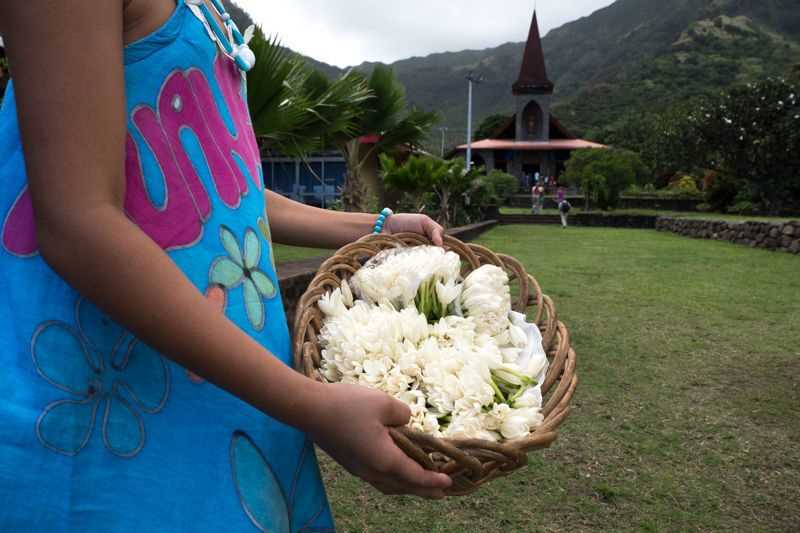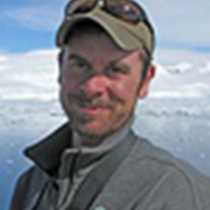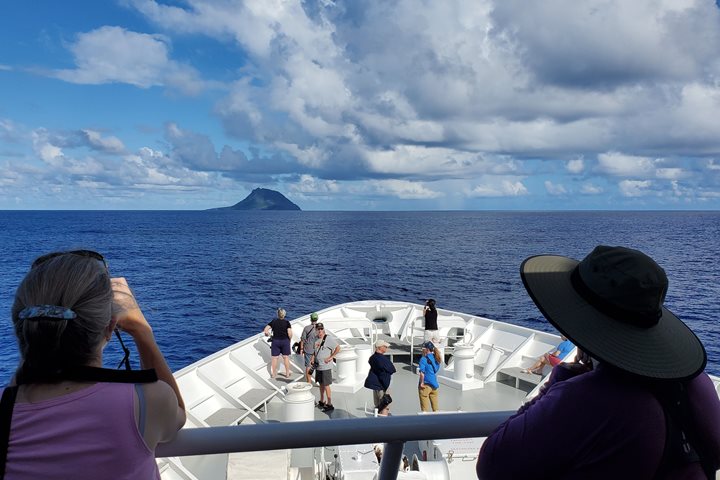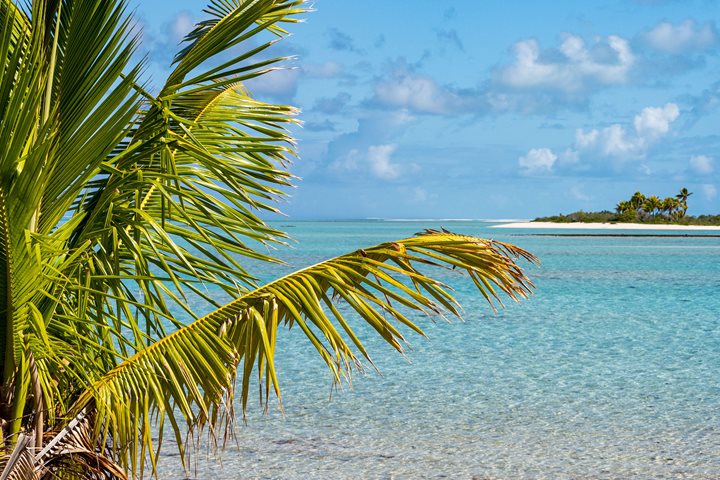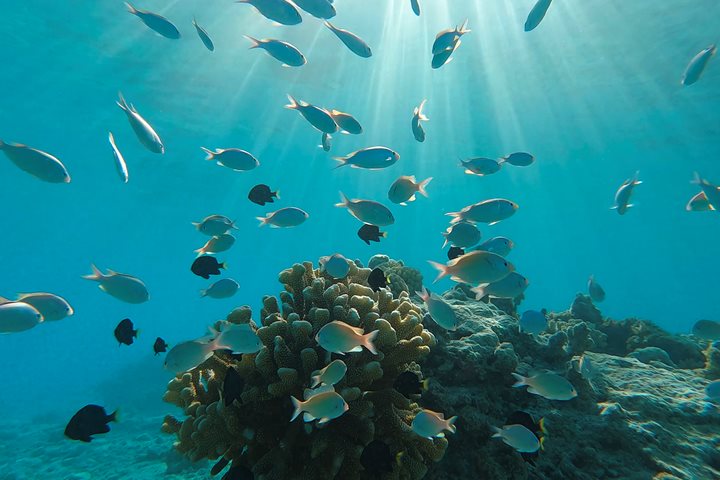It’s our last day in the Marquesas, and we were able to fit in a little bit of everything. We began in Vaitahu, the main village on this island, where some of us went in search of the Marquesan kingfisher (found it!) and others went to the stone Catholic church for Sunday mass. A large wooden statue of the Virgin Mary looks out over the village, and even those of us who did not attend the service got to hear the beautiful music flowing out through the open windows and down into the streets of town.
During the morning, we rotated through a series of museum tours with archaeologist Barry Rolett and some of his students. Over the last twenty years, he and his team have assembled an exceptional collection of Marquesan artifacts from their archaeological digs. The collection includes objects from the very first Polynesians who arrived between 700 and 800 years ago as well as items from the colonial period. We welcomed Barry and his team aboard for lunch and a presentation while we repositioned to the next valley.
After lunch, we had an opportunity to snorkel along a steep point near the village of Hapatoni. This would be our last opportunity to swim in the Marquesas, but also our last town stop – a tough decision!
For those of us who went ashore, we were greeted with a vibrant, joyful, and heart-warming group of local musicians and dancers. The energy here was something special. Half a dozen young musicians sang and called out words of welcome while young children, all dressed up for the occasion, danced for every Zodiac as it arrived.
In the village, a generous table of local fruit and many tables of beautiful carvings filled an outdoor community space, where we heard another musical ensemble. These were the older generation, and after we had visited for some time, they invited the children to perform again. It was not only charming, but also moving, to see so many people of so many different ages welcoming us with laughter and music. In the words of Raphael, a young man who met us at the jetty, “this is our connection to our ancestors. We don’t want to forget it.”
As the sun set, we sailed away from Tahuata with the songs still ringing in our ears.

